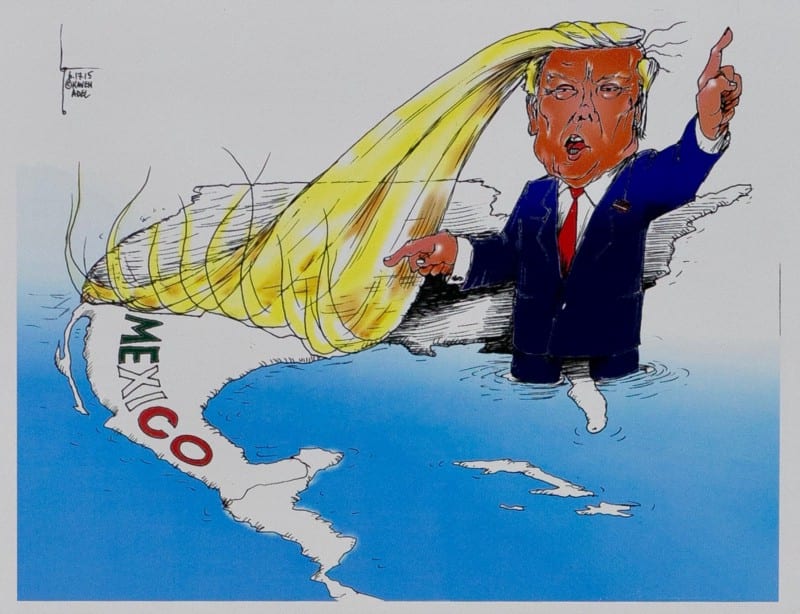
Cerca de 40 caricaturistas políticos de México y Estados Unidos expresaron sus puntos de vista sobre la política migratoria del presidente Trump para una nueva exposición que se inauguró esta semana en Chicago.
Cerca de 40 caricaturistas políticos de México y Estados Unidos expresaron sus puntos de vista sobre la política migratoria del presidente Trump para una nueva exposición que se inauguró esta semana en Chicago. Llamada así en honor a un grupo rebelde activo en Argentina en la década de 1960, Montooneros reúne a artistas de "todos y cada uno de los rincones de este país y de todos y cada uno de los rincones de México", según Omar Magaña, fundador de Little Village's Centro de las Artes OPENque acoge la exposición hasta el 8 de abril.
Magana afirma que se eligió el medio del cómic para esta exposición porque las caricaturas políticas han desempeñado históricamente un papel importante en la difusión de ideas, especialmente entre poblaciones con altos niveles de analfabetismo. Borderless habló con algunas de las personas que asistieron el 11 de marzo a la inauguración de la exposición binacional.
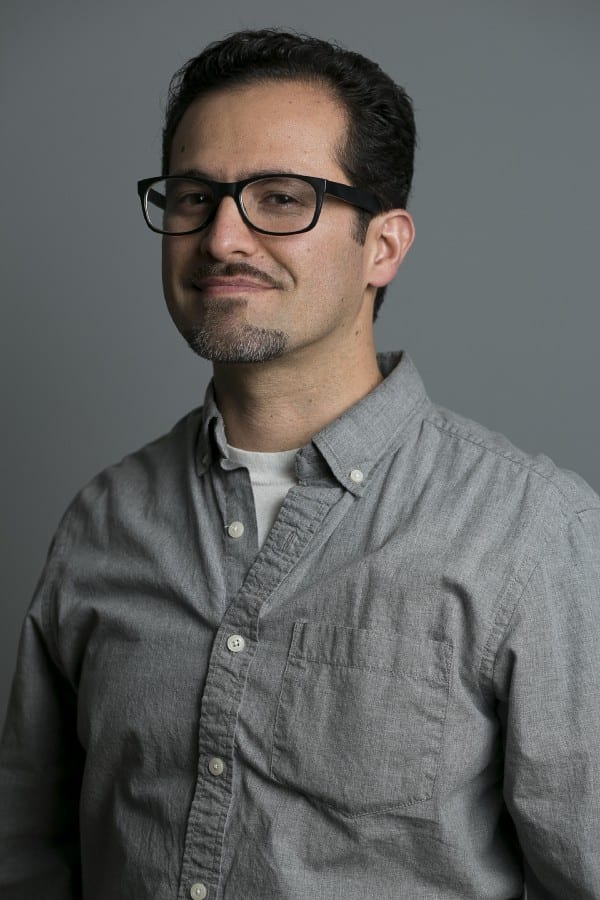
"Desde que Trump ganó la presidencia algunas personas han despertado finalmente a algunas de las cosas que ya estaban sucediendo aquí", dice el artista Eric J. García. "El racismo ha estado ahí desde el principio de Estados Unidos. Siempre estuvo ahí, pero se ocultó durante un tiempo. Pasó a la clandestinidad. Pero ahora ha sido desenmascarado de nuevo, y está en nuestras caras. Obama fue apodado "El Deportador en Jefe". Como presidente deportó a tantos inmigrantes. Pero ahora, es más descarado y en tu cara que Trump quiere deportarte".
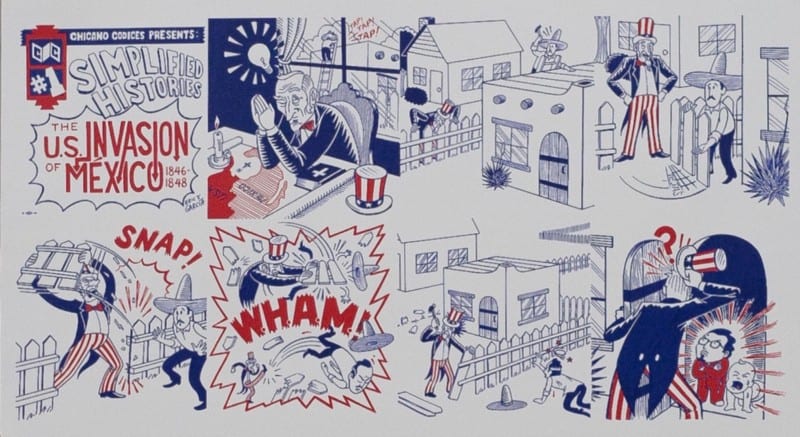
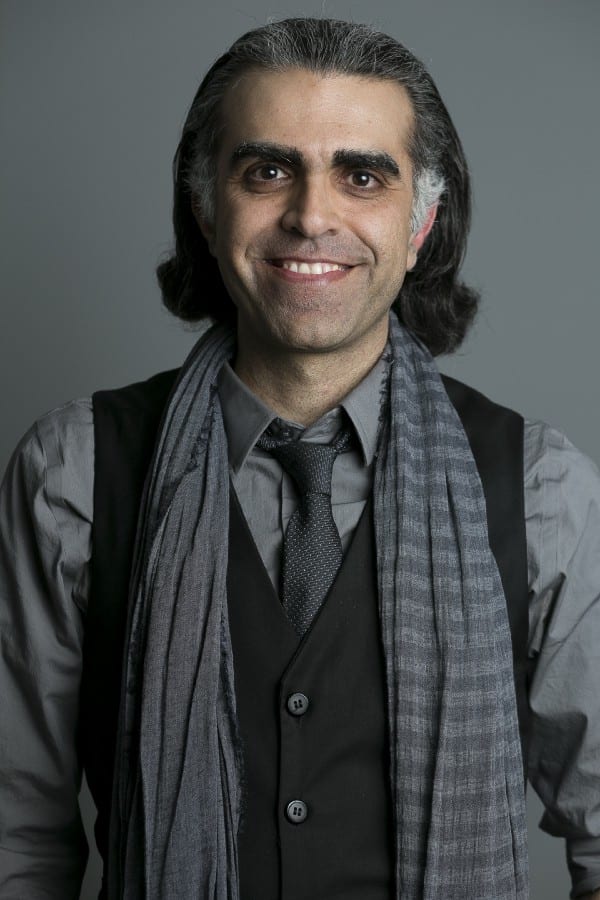
"El arte puede utilizarse para mantener a raya a quienes detentan el poder y es el fuego que hace arder a la humanidad en la dirección correcta", afirma el artista de Chicago Kaveh Adel. "Los artistas tienen la capacidad de dar mucha información en un solo cuadro. Esto realmente ayuda a educar a un público, con suerte, que puede no estar expuesto a lo que es un refugiado. O lo que es un inmigrante indocumentado. Emigré a Estados Unidos desde Irán cuando tenía 13 años. Huía de la persecución política. Cuando llegué a Estados Unidos, quería contar mi historia, pero era difícil hacerlo de forma verbal. Pero las imágenes tienen símbolos universales. Puedes dibujar un corazón y puede significar lo mismo para alguien de México, Irán o Canadá. Todo el mundo lo entiende. Estas caricaturas políticas son una oportunidad maravillosa para que los artistas eduquen a la gente utilizando estos poderosos símbolos".

"Parece como si la razón hubiera volado del gallinero", dice el artista Eric Semelroth. "La gente de derechas habla de generalidades y de volver a hacer grande a América. Pero, ¿qué significa eso? Quizá la gente que apoya las políticas de inmigración de Trump no ha visto el impacto económico de los inmigrantes en este país, el bien que hacen y los negocios que crean. Quizá una vez que vean lo bueno de eso podrían suavizar sus posturas sobre inmigración, pero yo no puedo pensar como ellos. Sólo tengo que seguir haciendo lo que hago con mi arte para fomentar el debate. No sé si convencerá a alguien, pero tengo que decir lo que tengo que decir".
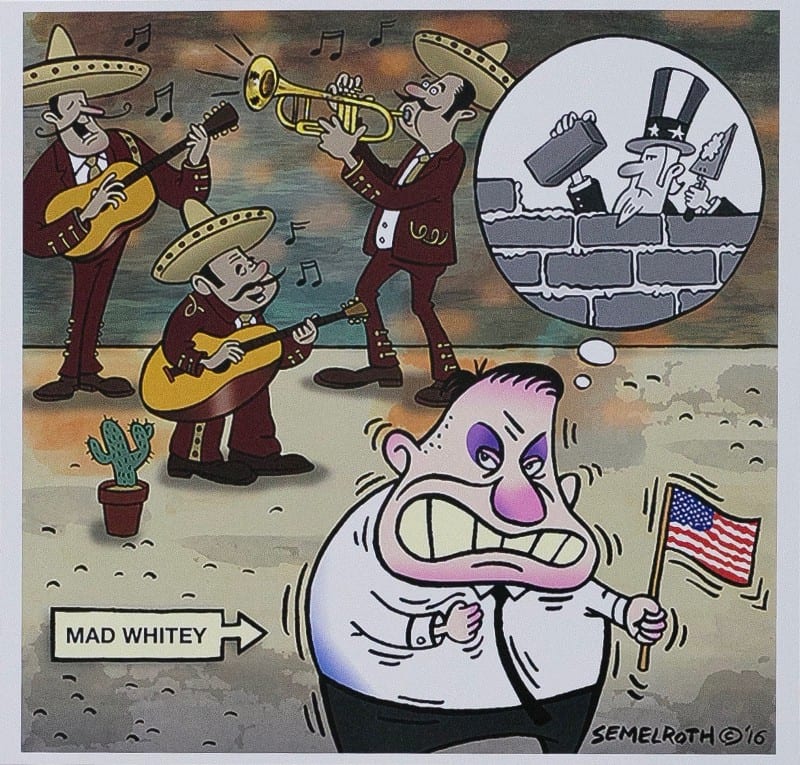
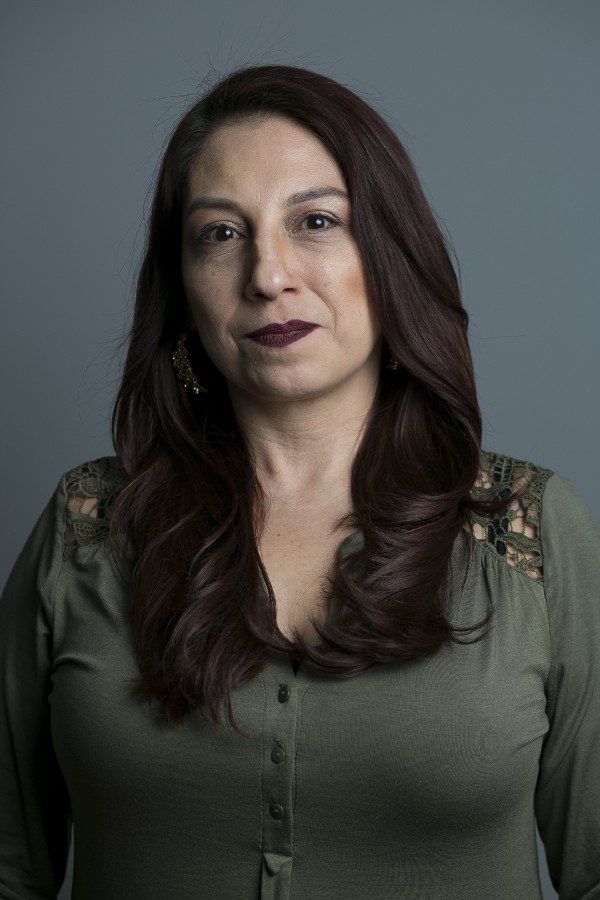
"Creo que son los inmigrantes quienes construyeron este país", afirma Georgina Vázquez, que asistió a la exposición. "Nunca ha sido un país exclusivamente de blancos. Llegaron todas estas culturas diferentes, todas estas razas diferentes. Somos un crisol. Estados Unidos se construyó gracias a los inmigrantes. Para que Trump diga: 'Vale, ahora ya no os necesitamos', después de beneficiarse de su trabajo en las industrias agrícolas y de servicios, prepárate para pagar costes más altos en todos estos negocios que dependen de los inmigrantes. No se puede desconectar a los inmigrantes y esperar que todo siga igual."
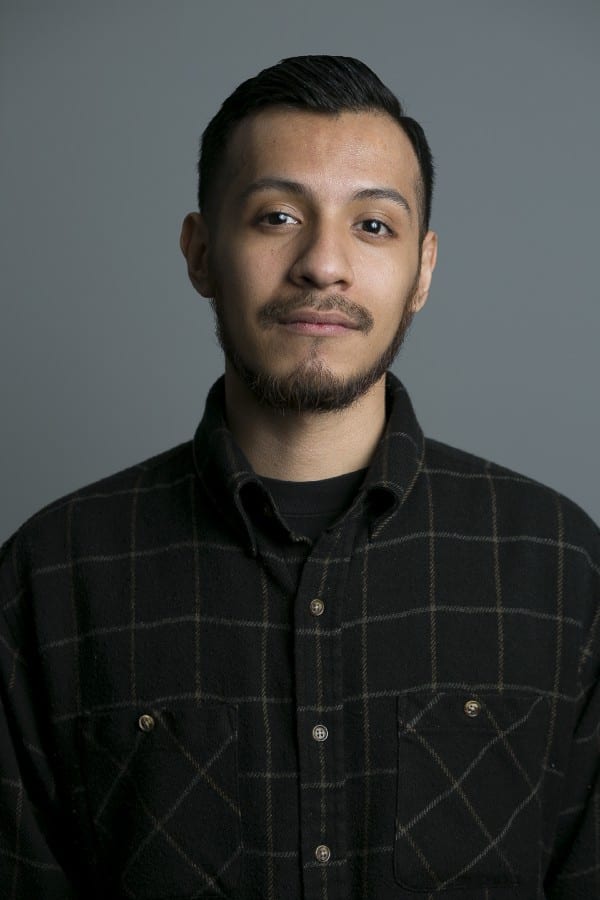
"Es muy difícil encontrar una salida para hablar de este tipo de temas políticos porque, normalmente, enseguida dices algo que a la otra persona realmente no le interesa escuchar", afirma el artista José Raya. "Con las caricaturas políticas primero ves el arte. Y luego, al ver esas imágenes, te hacen pensar. El arte no te habla con palabras. Sólo te muestra una imagen. Y tú vas a usar tu propio cerebro para conectar con ella. Así que creo que este tipo de arte político es necesario, especialmente en un momento en el que el "Make America Great Again" de Trump ha partido el país por la mitad."
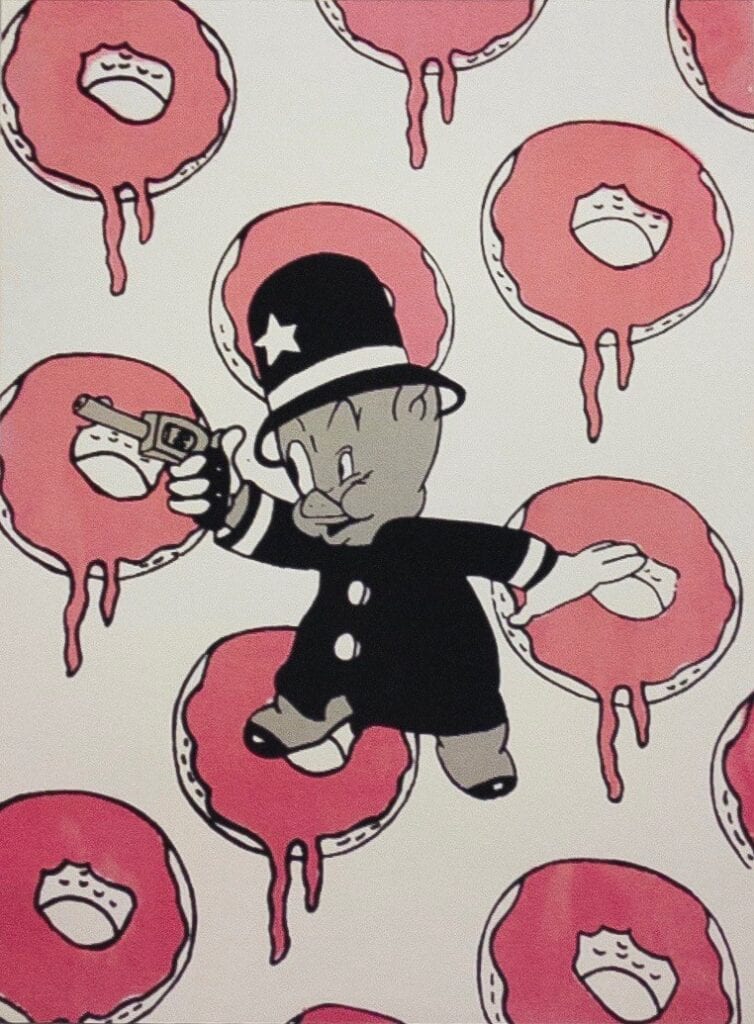
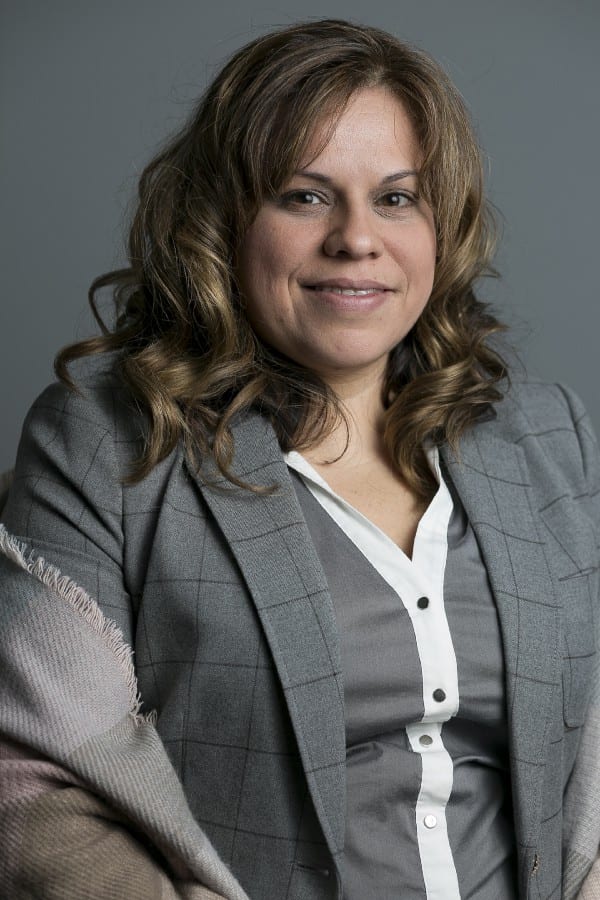
"Ahora mismo todo es negativo", dice Cynthia Vaca, que asistió a la exposición. "Hay familias que temen ser deportadas. Creo que la gente que apoya las políticas de Trump debería ver la otra cara de lo duro que es dejar todo lo que tenías en México para buscar una vida mejor aquí. La gente se va por muchas razones. Porque quieren una vida mejor para sus hijos, huyen del abuso doméstico o son refugiados que buscan asilo. Creo que deberían abrirse a analizar todas las razones por las que la gente viene a este país, no centrarse sólo en los inmigrantes que vienen porque quieren conseguir un trabajo."
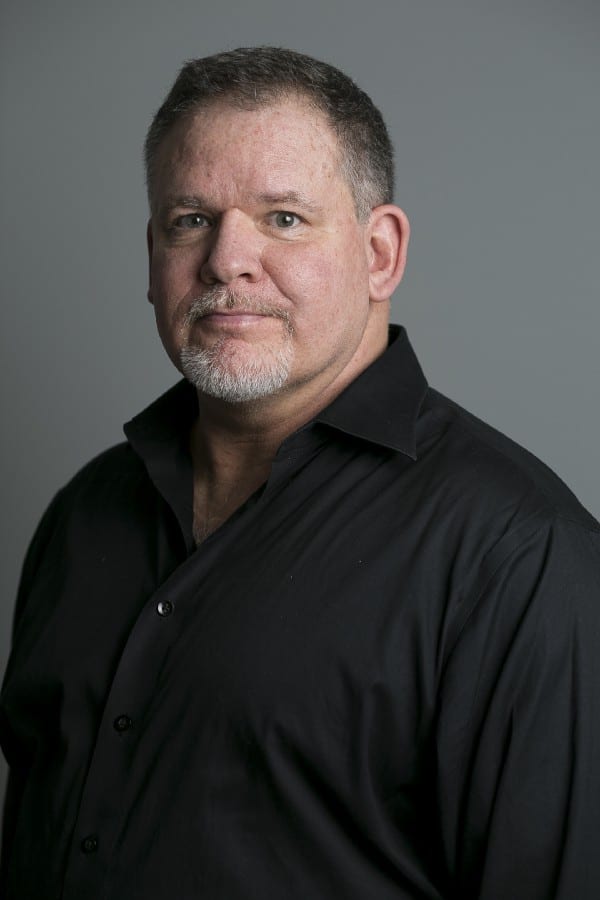
"Cuando era niño en El Paso (Texas), mi padre, sin ningún tipo de malicia y más bien por ignorancia, utilizaba el término 'espaldas mojadas'", explica el artista. Mark Ranslem. "Cuando era niño, no entendía lo que significaba esa palabra y más tarde mi madre me dijo que no utilizara ese término. Más tarde aprendí que el término que había que usar era 'extranjero ilegal'. Y ahora es el término más neutro 'inmigrante indocumentado', porque la gente no es ilegal. He conocido a muchas personas indocumentadas y para mí no es un problema. Era parte de lo que era crecer en El Paso. La gente cruzaba la frontera con mucha fluidez, yendo y viniendo por trabajo. Conocía a personas que necesitaban ganar dinero trabajando en un centro de enfermería durante el día y luego volvían a casa en Juárez, México, por la noche".
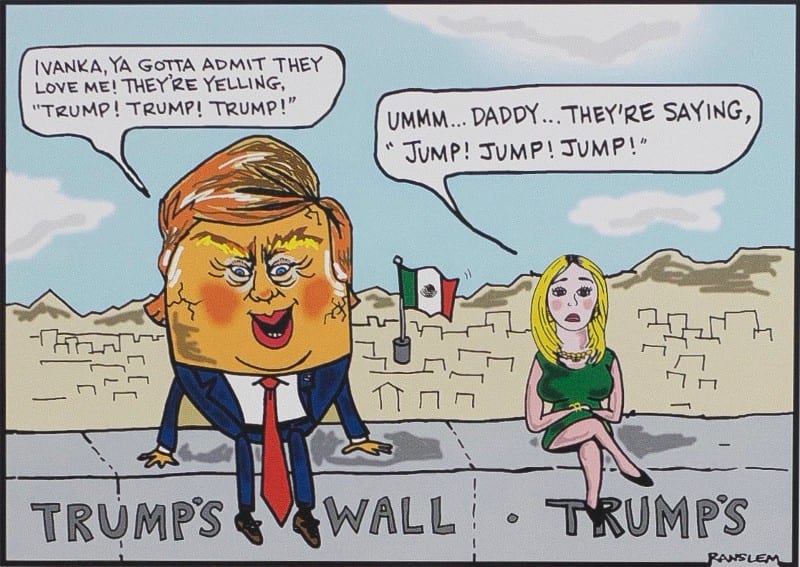
Montooneros funcionará a Centro de las Artes OPEN en 2214 S. Sacramento Ave., Chicago, hasta el 8 de abril. Después, la exposición viajará a México.

